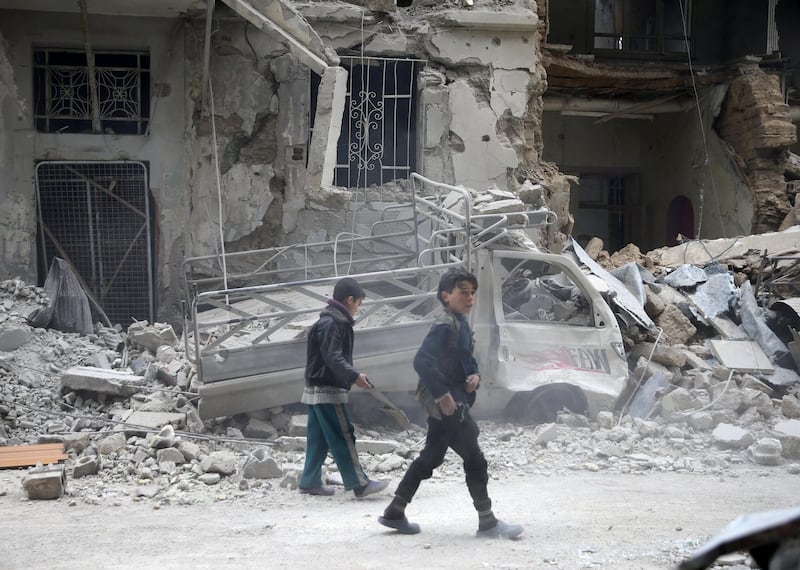Fighting has only worsened in Syria in the week since the United Nations called for a month-long ceasefire, the UN's humanitarian coordinator in Damascus warned on Monday.
The UN made an urgent plea last Tuesday for warring sides in Syria to temporarily lay down their arms and allow aid deliveries to desperate civilians.
The UN Security Council failed to back the appeal but was set to consider a new draft on a 30-day pause on Monday.
Hours before the talks, the UN's humanitarian coordinator in Syria, Ali Al Zaatari, renewed the plea.
"Since our statement of 6 February, when the UN representatives in Syria called for a one-month cessation of hostilities, the situation has worsened," Mr Al Zaatari said in a statement.
"We are witnessing some of the worst fighting of the entire conflict, with reports of hundreds of civilian deaths and injuries, massive displacement and the destruction of civilian infrastructure, including medical facilities," he added.
Over the past week, Syrian government planes have pounded the opposition-held enclave of Eastern Ghouta near Damascus, as rebels fired rockets and mortars down on the capital.
_______________
Read more:
Armed with phones, Syrian activists build case against Assad regime
UN chief calls for immediate de-escalation of violence in Syria
The contest for spoils in Syria is escalating into a full-fledged international war
Syrian civilian deaths: 'As awful now as it's ever been'
_______________
A Turkish-led offensive in northwest Syria has continued to displace families along the northern border.
"We keep stressing our message, that this terrible suffering of the Syrian people must stop. They have already borne the brunt of this brutal conflict," Mr Al Zaatari said.
"I am again appealing to all parties, and those with influence over them, to listen to us and to the affected population: end this intolerable human suffering," he added.
Negotiations are to begin in New York on Monday on a new draft presented by Sweden and Kuwait demanding a 30-day ceasefire and an end to sieges, and diplomats said it could quickly come to a vote at the Security Council.
But it remained unclear whether Russia - which has repeatedly used its veto to protect its ally President Bashar Al Assad - would block the action.
More than 13.1 million Syrians are in need of humanitarian aid, including 6.1 million who have been displaced within the country during the nearly seven-year war.
Meanwhile on Monday a Syrian Kurdish militia partnering with the US-led coalition to fight ISIL said that it is holding a "huge number" of foreign fighters in Syria and none of their home countries want them back.
The head of the People's Protection Units, or the YPG, Sipan Hemo, speaking to reporters in a conference call said that more than half of those detained in the battle against ISIL in Syria are foreign fighters from all over the world, including Russia, Europe, China, Japan and Arab countries.
The future of those militants remains unclear and the process for bringing them to justice unsettled amid a debate, mostly in Europe, about whether they should be allowed to return home.
"We suffer from the large number of Daesh detainees that we have now," Mr Hemo said, using the Arabic acronym for ISIL.
Mr Hemo said there is a "huge" number of ISIL foreign fighters and administrators from all over the world. Most of them are from Russia, Europe and Arab countries, he said.
Mr Hemo said his forces have formally asked foreign governments to take their nationals to be tried at home. "Up until now, no one wants to take them back or to try them. We still have them in (local) prisons," he said. "Honestly, we also don't know what their future will be."





